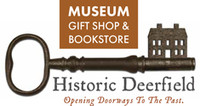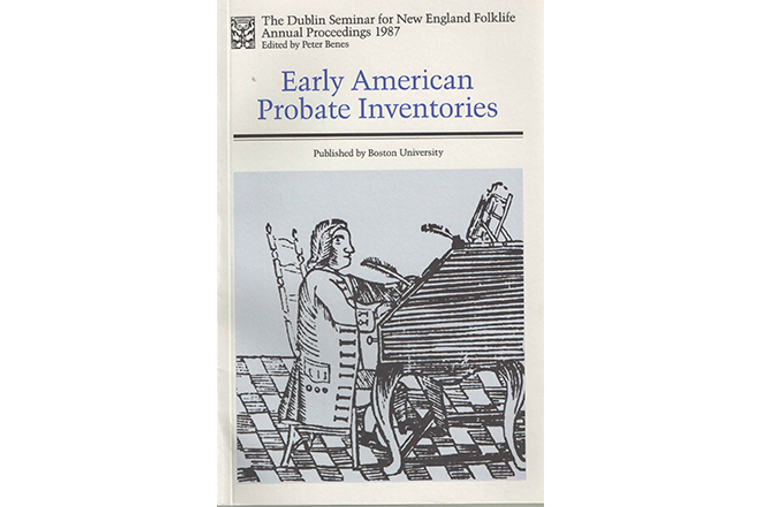
Early American Probate Inventories
This publication is a collection of papers presented in June of 1987. The conference was organized to consider the three broad uses of early American probate inventories: artifact and artisanry research; documentary historical archaeology, and social, economic, and cultural history. Inventories were lists of ordinary household belongings compiled by neighbors who usually worked in pairs or threes and these documents potentially balance museum collections and artifactual survivals.
The following is a list of the title and author of each paper: Matching Inventory Terms and Period Furnishings by Robert F. Trent, The Meaning of Absence: Household Inventories in Surry County, Virginia, 1690-1715 by Anna L. Hawley, Using Tax Lists to Detect Biases in Probate Inventories by Kevin M. Sweeney, Literacy and Reading in Eighteenth-Century Westborough, Massachusetts by Ross W. Beales, Jr., Dress in Seventh-Century Westborough, Massachusetts: An Inventory Based Reconstruction by Patricia Trautman, Women’s Property and Family Continuity in Eighteenth-Century Connecticut by Barbara McLean Ward, Rhode Island Handloom Weavers: A Probate Perspective by Gail Fowler Mohanty, First-Period Architecture in Maine and New Hampshire: The Evidence of Probate Inventories by Richard M. Candee, Delaware’s Orphans Court Valuations and the Reconstitution of Historic Landscapes, 1785-1830 by Bernard L. Herman, Sleeping Arrangements in Early Massachusetts: The Newbury Household of Henry Lunt, Hatter by Peter Benes, The Distribution of Consumer Goods in Colonial New England: a Subregional Approach by Gloria L. Main.





